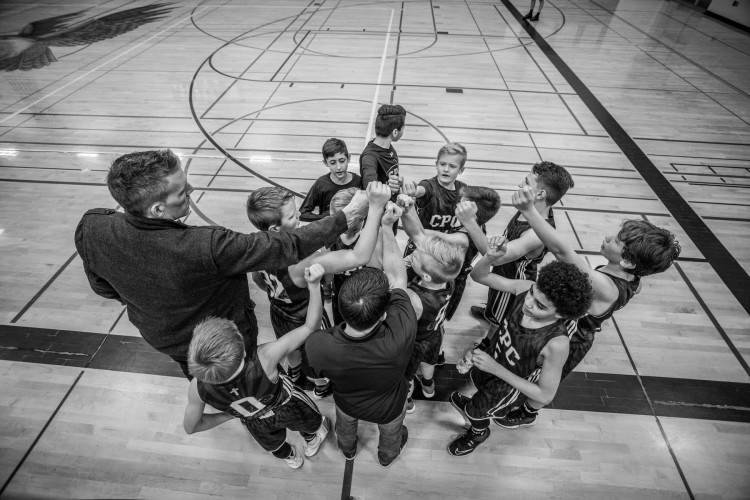
Everyone knows that a good mentor training is key to providing quality services in a mentoring program. The Elements of Effective Mentoring Practice (EEMP) include metrics for mentor training, and countless hours of training and technical assistance have been devoted to helping programs create or improve their training curricula. The EEMP recommends at least two hours of pre-match training for all mentors, with an optional enhancement of adding up to six hours of ongoing training throughout the life of a match. While this may be fine for mentor programs that serve youth who are not at high risk, when working with vulnerable youth, such as those who have experienced trauma, have serious emotional disorders, or who have been involved in the foster care system, this benchmark is not nearly enough.
Pre-match mentor training typically ranges from two hours to four hours, depending on the program, and for programs that serve youth impacted by trauma, that could go up to 20 hours or more of pre-match training. One program, Fostering Healthy Futures, requires prospective mentors to attend three full days of training before being matched with youth who have been impacted by the foster care system. Another program, Wonder Inc. required 25 hours of pre-match training over four days. Why so long?
Florence Rayner, a technical assistance provider and a member of the California Mentoring Partnership’s Leadership Team, explains that in addition to training mentors on all the important topics dictated by best practices, mentors working with youth in the foster care system need to learn about the system, about trauma and its impact on youth, and how to avoid or manage triggers that can lead to emotional responses in the youth. Rayner ran Wonder, Inc. (which has since merged with Sierra Forever Families), in addition to other mentoring programs for youth in foster care.
“In my opinion,” Rayner states, “if you are committed to addressing the needs of the [foster care] community I would say [you need to offer] three times more training than when working with youth in traditional programs.” That means that while typical programs offer between 2 and 4 hours minimum of training, programs that serve youth in foster care should offer at least 12 hours. “You can do it in 12 hours,” Rayner says about her 25-hour training, “but you have to be very thoughtful about how you design the training to make sure you cover everything.”
One of the reasons training must be so rigorous is that the lives of these young people can be so complicated. Consider a typical mentoring relationship: A volunteer meets regularly with a young person. Each week, they pick that person up at their house, spend some time with them, and drop them off. To arrange a meeting, a mentor might have to call the parent and set a time, confirm the time with the mentee, and then have the outing. But when working with youth in the foster care system, that scenario becomes a lot more complicated. Maybe the mentee lives with a grandparent or other kinship placement, but often they might be living with a foster family, or maybe in a group home. Simply getting permission to see the child could require a herculean effort. And then there is the fact that building a trusting relationship with the mentee – the essential element of mentoring– is much harder when working with someone who has learned to be wary of the adults in their life.
In addition to the topics that should be covered in a typical mentor training, training for mentors who work with youth in foster care should include a thorough discussion of the foster care system, tailored to the area in which you live. Each county or state has different laws around foster care, and systems can vary widely in terms of structure (staffing, the types of placements) and experience (the number of average placements for each child). It’s important that mentors understand the system for two reasons: First, they’re likely to come in contact with it at some point during their relationship with the child, and second, it’s critical to the relationship that mentors have some understanding of the challenges their mentees are facing as part of the system. Someone who hasn’t been involved in the foster care system can’t fully understand, for example, just how many people – social workers, case managers, foster parents, lawyers and more – might be involved in the child’s everyday life, or how that involvement can impact even the smallest part of that child’s life. Educating mentors on how the system works and who the players are can help them understand just how stressful being in out-of-home care can be for a young person.
Mentors should also have a good understanding of the impact of trauma on young lives, and how best to work with youth who have been traumatized. For example, mentors should be trained on how to react and respond when something triggers a traumatic memory or response from a youth. “If a mentee is upset and [the mentor] doesn’t understand why we train mentors not to question the reaction or focusing on their own feelings about the situation,” Rayner says. However, she warns that even though training on trauma is critical, it’s important to make sure that mentors have a strengths-based perspective of their mentee. “Even though we’re talking about these things in training to prepare mentors, it doesn’t mean that we go into it thinking that our kids are broken,” she says.

According to Mentoring Youth In Foster Care from The Technical Assistance and Training Program for Mentoring System-Involved Youth, pre-match training should, at a minimum:
- clarify the goals of the program
- provide an overview of the foster care system
- increase mentors’ understanding of the issues faced by youth in foster care
- assist mentors in setting realistic expectations for the relationship
- recommend strategies for building a relationship with a young person in foster care
- help mentors identify the challenges and strengths of their mentee
- review program policies about contact between the mentor and the youth’s biological or foster family as well as the requirement to keep program staff informed of such contact
In addition, other topics to cover are:
- The impacts of trauma and trauma-informed care
- Developmental expectations (for youth who have experienced trauma)
- Positive youth development
- Self-regulation and relational skill-building
- Handling sensitive subjects – when and about what not to ask questions
- Confidentiality and mandated reporting
- Self-determination
- Appropriate activities (what’s allowed and what can be done in a supervised setting)
- Risky behaviors
- Cultural humility and cultural competence
youth in foster care Mentorship Training For Program Managers produced by The EMT Group for the California Department of Alcohol and Drug Programs, provides some valuable information and resources to create mentor training. Program staff should consider partnering with child welfare and other agencies to conduct portions of the training to ensure expert advice and insight. Katie Lackler, coordinator of the Calaveras Youth Mentoring Program and a co-worker of Smith, says that working with case managers and child welfare workers enhances the training they provide and ensures that the information mentors get is up-to-date and accurate. “We use outside resources like counselors and social workers [to conduct the training],” she says. “That way, mentors are hearing from people who make [youth in the foster care system] their focus.”
In addition to pre-match training, it’s important to provide ongoing training throughout the program. Rayner stresses that programs serving this population should be very intentional about ongoing training. Her programs offered on-going training on issues that came up during matches and topics related to the foster care system. Ongoing training might provide more in-depth information about topics covered in pre-match training, or might address issues that have arisen in matches, such as:
- appropriate expectations of youth in foster care
- challenges that arise in the relationship
- building on young people’s strengths and interests
- communication skills, conflict management, goal-setting, and limit-setting
- resources for neglect, abuse, behavioral or emotional problems, and substance abuse
Just as training around foster care systems should be tailored to the community you’re in, training topics should also be tailored to the type of program you run and its goals. For example, some mentoring programs for youth in the foster care system expect that mentors will be integrated into the youth’s treatment team, attending meetings with caseworkers and families and communicating regularly with others involved in the system, while other programs deliberately keep the mentoring relationship separate from the treatment team. For those programs that give mentors more involvement, extra training is key so they understand their role and are able to meet program expectations. The Court-Appointed Special Advocate (CASA) program, while not technically a mentoring program, requires its volunteer advocates to take 40 hours of pre-match training to prepare for their roles.
Regardless of your program goals and structure, Rayner says training should be a big focus of your program design. “Programs need to be very intentional,” she says. “Training should be well thought-out and designed with consideration for its impact of children in care.” For example, training materials should avoid labeling youth and should be developed with a positive youth development approach, focusing on youth and family strengths rather than deficits. Most important, mentors need to fully understand the importance of making a commitment to these youth and sticking with it. Even more than with typical mentor matches, consistency is critical, as youth impacted by the foster care system have been let down too many times already.
Smith echoes that focus. “Our philosophy is based on relationship first, on building trust in a relationship,” she says. “[The program is] firmly fixed in supportive mentoring and creating an authentic friendship. Building a relationship and building trust comes first. Everything else comes later.”
This toolkit was co-authored by Dana Goodrow. To access other modules in this toolkit, see the Related section below.




